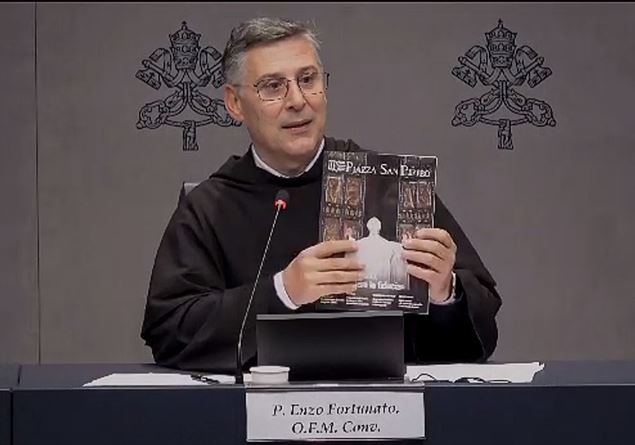
Maurizio Petriccioli, general secretary of CISL Fp, 62 years old
«The agreement represents a significant step towards a more modern and inclusive Public Administration. The possibility, for example, of dividing working hours over four days represents a very positive innovation for the public sector: the “short week” responds to a growing demand for flexibility, allowing workers to better balance their lives private with professional commitments”. In the aftermath of the agreement signed by Cisl-Fp and the autonomous unions Confsal Unsa, Flp and Confimpresa Fp (but not by Fp-Cgil and Uil-Pa), for the renewal of the 2022-2024 contract of the Central Functions sector, the secretary General CISL Public Service Maurizio Petriccioli says he is satisfied. Among the measures, monthly increases, the expansion of smart working and, indeed, the short four-day week on a voluntary basis, «a measure that looks to the future, making the public administration more attractive and in step with European trends in terms of work organization».
Let’s start with the “short week”, a decidedly innovative measure for Italy…
«Yes, because it is not only a time management option but also an important signal of attention towards the well-being of employees, with a potential impact not only on productivity but also on communities thanks to the reduction of home-work travel, determining an overall improvement in life in big cities.”
Overall, how do you evaluate the agreement reached for the renewal of the 2022/2024 contract?
«The renewal is the result of a long process of discussion and negotiation, which took into account the needs of workers and the current challenges that the public sector must face».
Are you satisfied, then?
«As Cisl Fp we considered the agreement reached as the most advanced point of mediation possible: we have in fact signed the best possible contract with the given conditions, aware of the phase that the country is experiencing and of the new European budget rules which impose choices on the executives clear on economic matters. Furthermore, the achievement of 5.4 billion for the 2025-2027 renewals will help us bring the increases to around 330 euros on average gross per month, giving both continuity to the contractual season and the opportunity for the trade union organizations signing the contract to sit at the table already after the definitive stipulation of this contract, which will take place after the ritual checks and registration by the Court of Auditors. It is an absolute novelty to have the resources already available for the next renewal, compared to previous contractual rounds.”
What are the other news for the approximately 195 thousand ministry employees, of tax agencies, non-economic public bodies including INPS and INAIL?
«Economic adjustments, but also measures that aim at the quality of work and the valorisation of professional skills and responsibilities. In economic terms, the renewal provides for a 6% increase in the average gross salary, if we also consider the increases deriving from the funds for supplementary bargaining, which translates into a concrete recognition of the value of public employees. The increase, over thirteen months, in the table salary alone starts from around 121 euros for operators up to almost 200 euros for highly professional people. On a regulatory level, economic development mechanisms have been strengthened. Furthermore, we have achieved important progress on the topic of trade union relations, with a strengthening of the matters subject to national integrative bargaining in individual administrations and of local headquarters bargaining”.
From smart working to the expansion of permits for specialist visits, how much impact will the new contract have on work-life balance?
«One of the central objectives of the contract was precisely to improve the balance between private life and working life, responding to the increasingly complex needs of workers. From this perspective, the agreement provides for more flexible regulation of smart working, allowing employees to carry out part of their work remotely. This is especially important for those who live in large cities or face long commutes. Furthermore, the right to paid leave for specialist visits has been expanded and the need for greater attention by administrations on health and safety policies has been indicated. age management: an important step towards greater flexibility and attention to individual needs. This renewal reflects a vision that is more attentive to the well-being of the person, taking into account the needs of family and social conciliation.”
Age management mechanisms aim to enhance the strengths of different generations of workers. In which direction are we going?
«The introduction of age management measures is an innovative aspect of this contract. Our society is characterized by a progressive aging of the active population and public administration, unfortunately, is no exception. For this reason, the contract provides for the possibility that administrations can introduce specific benefits for older workers but also for those newly inserted in working contexts, with the aim of enhancing their skills and guaranteeing a transfer of knowledge to new hires. For example, forms of tutoring And mentoring, which will allow more experienced workers to support and train younger ones. This approach allows us to preserve a wealth of skills and fosters a rich and inclusive intergenerational environment.”
Which they are, instead, i fronts that still remain open?
«Despite significant progress, there are still aspects that require further intervention. One of the main fronts concerns the cap on additional wages, which limits the economic recognition linked to performance but also the possibility of adjusting the allowances related to hardship and professional condition. The cap on the funds themselves severely limits the possibility of economic advancement during working life. This constraint risks penalizing employees, especially those with high responsibilities, and making public work less attractive than the private sector. Another issue on which we still need to work is that of career development up to access to the areas of high professionalism where staff with managerial and professional responsibilities should be placed. It is essential that the Government allocates adequate funds to ensure full valorisation of these figures and officials. Finally, the question of expanding funds for decentralized resources and ancillary treatments remains open, so as to guarantee greater fairness and recognition for all public employees.”







